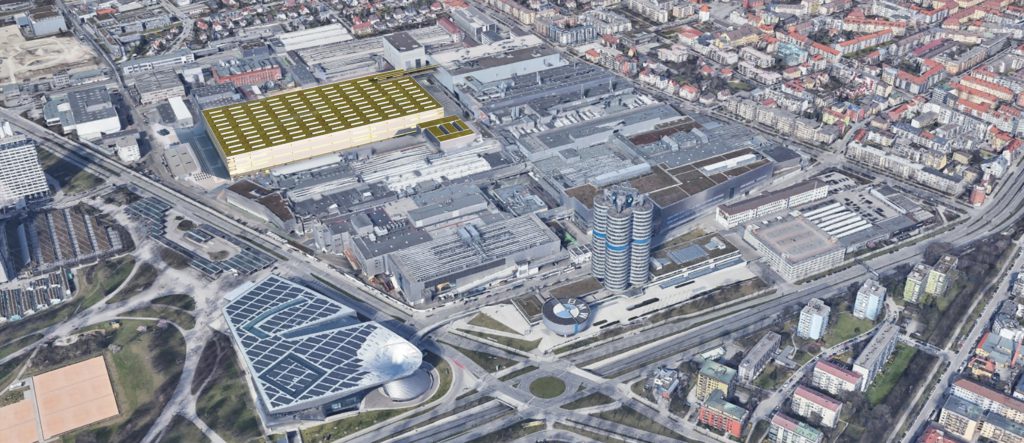BMW speeds up shift to electric production
19 November 2020

19 November 2020
BMW Group is accelerating electrification efforts as it strengthens global production. The carmaker is investing €400 million in new-vehicle-assembly capabilities at its Munich plant. At the same time, the manufacturing of internal combustion engines (ICEs) in Europe will become the focus of its Steyr, Austria, and Hams Hall, UK, sites.
′We are systematically implementing our electrification strategy,’ said Milan Nedeljković, member of the board of management responsible for production. ′By the end of 2022, each of our German plants will be producing at least one fully-electric vehicle.’
Much ado about Munich
As the group’s main plant, Munich is being geared towards the needs of electrically-chargeable vehicles (EVs). A total of €400 million will be invested in new-vehicle-assembly capacities between now and 2026. Previously, the bodyshop was expanded, and a new resource-efficient paint shop was constructed between 2016 and 2018.
′We are continually developing Plant Munich towards electromobility and creating efficient and competitive production structures for this purpose,’ explained Nedeljković. ′This decision signals our strong commitment to the Munich location.’
The future production processes will be designed for a new cluster architecture, geared towards electric drivetrains. ′This architecture will be in use from the middle of the decade,’ Nedeljković said. ′It will ramp up for the first time at our future plant in Debrecen, Hungary, before being rolled out across our global production network in stages.’
Producing a trend
Advancing EV-manufacturing capabilities follows a trend for BMW. The carmaker also recently announced it will coat cells for high-voltage units at its plant in Regensburg, where it is investing €150 million. Meanwhile, the carmaker is plumbing €100 million into its Leipzig plant, where it will produce modules for batteries. As upcoming EVs like the recently unveiled iX draw market attention, production capacities like these will be essential to meet rising demand.
From next year, the i4 and iX will come off the production lines in Munich and Dingolfing respectively. Fully-electric variants of the new 7-Series and the future 5-Series are also reportedly ready to go in Dingolfing. Regensburg will start manufacturing the X1 in 2022, which will be available with both ICE and fully-electric drivetrains. From 2023, Leipzig will produce the successor to the Mini Countryman, also with ICE and EV variants.
At its Competence Centre for E-Drive Production in Dingolfing, the company will increase employee numbers from 1,000 currently to up to 2,000. More than 50,000 people at the group have already been trained for electromobility since 2009. ′The transformation of our plants and securing future jobs go hand in hand,’ said Ilka Horstmeier, member of the board of management responsible for human resources. ′Here in Munich, we will prove once again that the BMW workforce can handle change. Our employees will receive intensive support and training throughout this process.’
Relocating ICE
However, this does not mean the manufacturer is abandoning ICE vehicles. ′We are capable of producing both vehicles with combustion engines and electric drive trains on a single line and responding flexibly to customer requests,’ said Nedeljković. ′This is a crucial success factor.’
Munich’s new assembly line will be built on the site currently used for ICE production. Moving forward, four-, six-, eight- and 12-cylinder engines will be made at the company’s locations in Steyr in Austria and Hams Hall in the UK. This transition will be completed in stages, by no later than 2024. ′Restructuring our engine-production network is a strategic move geared towards the future. We are also boosting our efficiency and optimising our capacity utilisation,’ explained Nedeljković.
The relocation of some engine production to the UK will be good news for the country, as uncertainty continues to surround future trading relationships with the EU, with the transition period fast-reaching a conclusion.
However, as EU emissions targets bear down on carmakers and countries like the UK shorten petrol and diesel sales deadlines, continuing these ICE production lines might begin to appear impractical.